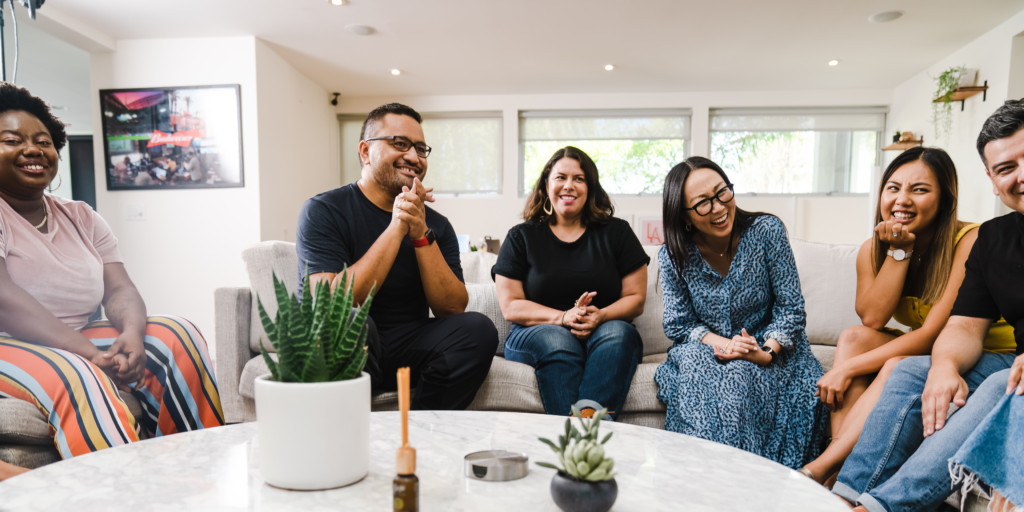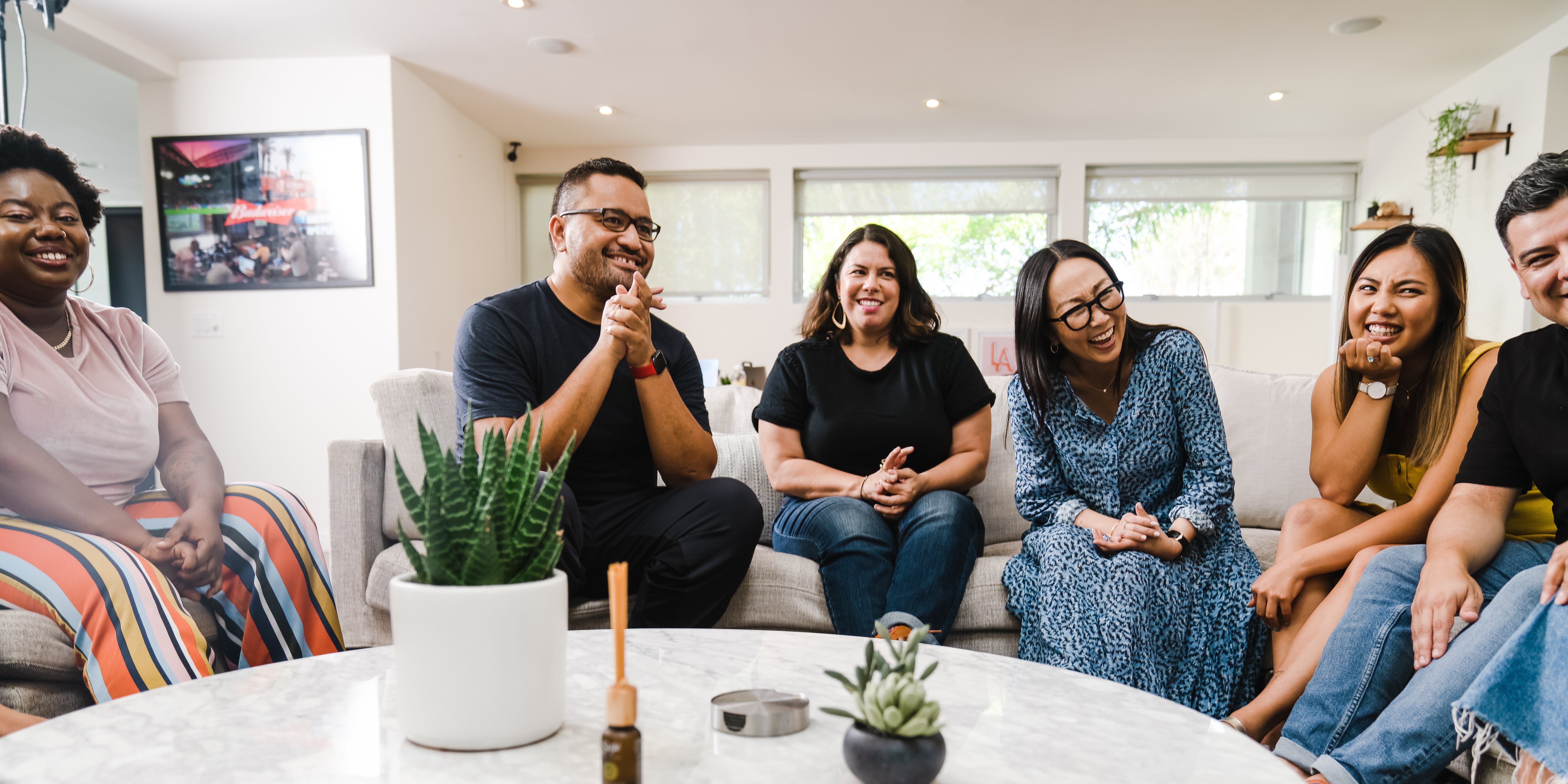The Power of Community Support and Where To Find It

It can be one of the most difficult cycles to break. If your mood is low, you probably don’t want to spend much time with others. A heavy heart often drives us to seek solitude. Yet, here’s a secret: connecting with others holds the key to brighter days.
The more diverse your “portfolio” of social interactions, the happier you’ll be
Connecting with other people can come in many forms – family, friends, colleagues, neighbours, people with similar interests, even online connections. There’s no doubt that having strong and positive relationships within your close circle of family and friends is a good thing for your wellbeing – but there’s a wider range of support that can be accessed.
Research from Harvard found the more diverse your “portfolio” of social interactions, the happier you’ll be. This could be as small as chatting to the shopkeeper when you pick up your groceries or a bit of small talk on the train. It’s about widening opportunities to engage with others on various different levels.
Community creates a sense of belonging
It’s been proven that people in neighbourhoods with higher levels of social ‘togetherness’ experience lower rates of mental health problems than those in neighbourhoods with lower ‘togetherness.’
‘Togetherness’ refers to community, to support, to feeling like you’re part of something. Can you think of a time where you felt that? It’s usually a pretty nice feeling. Community can give you purpose and responsibility and often you’re contributing to something bigger or helping others out.
Types of community and how to find them
Hobby and creative communities
Do you have a hobby or specific interest? Is there something you’ve always wanted to try or haven’t done for years? This is your opportunity to make it something more regular in your life and even develop a skill. Think crafts, sports, collecting, nature or spotting.
Volunteering and social impact groups
You might already know which area you’d like to volunteer in, campaign for or support. But if not, browse and find out which causes are looking for support.
Religious or community groups
If you follow a religion or have a religious background, you’ll probably find that your local place of worship offers lots of opportunity to get involved.
Self-help and wellbeing groups
Look out for group support sessions, or informal get togethers based around specific issues such as anxiety or depression. They may be run by local charities.
Groups based on your demographics
Which groups would you categorise yourself in? Are you a single parent, are you gay, are you of South Asian heritage, are you over 65… the list could go on and on and you’ll be guaranteed to find a group you can identify with.
Online communities
Depending on the kind of interests you have, there are a huge amount of options for finding your tribe online. It may be in the gaming world, maybe on social media, maybe via an app. The beauty of online is that you can reach a whole world full of people.
Our favourite places to find the perfect community for you
– Eventbrite – an excellent website for finding both online and local offline events and groups
– MeetUp – a website specifically designed to help people find the community for them – and if it’s not already there you can start it!
– Doit.life for volunteering opportunities
– Discover your local Mind and the events they offer
– Facebook groups – to connect with online communities in a specific niche
– Local Facebook groups – often the best places to discover local “in real life” events and groups
– Follow event venues and community groups on social media to find out about new groups and events
We all know that talking about the messy stuff that’s troubling us is good to do – it’s what we should be doing – even if we don’t. But it’s not always easy, sometimes it’s really tough to put what we’re feeling or have experienced into words, whether it’s with a loved one or a counsellor.
Becoming part of a community can offer an outlet for you to chat to others – not necessarily about the deep stuff – but to share and to learn and to soak in other’s perspectives and experiences.
And as a final thought, you don’t have to be struggling with your mental health to decide that joining a new community might be beneficial for your wellbeing. Doing what you can to build your resilience and enhance your wellbeing when you’re in a good place is probably one of the best things you can do to protect your mental health.



Leave a Reply